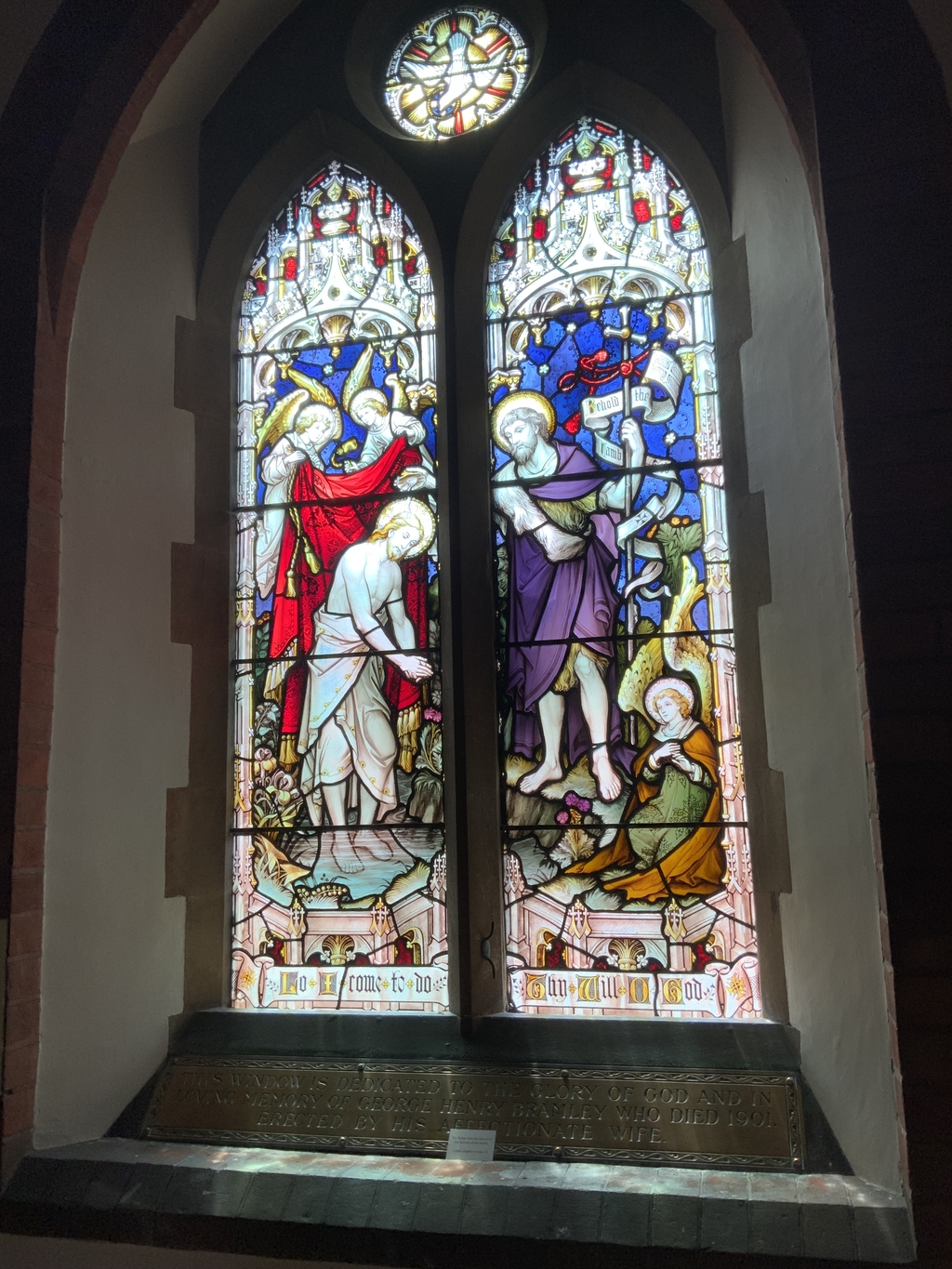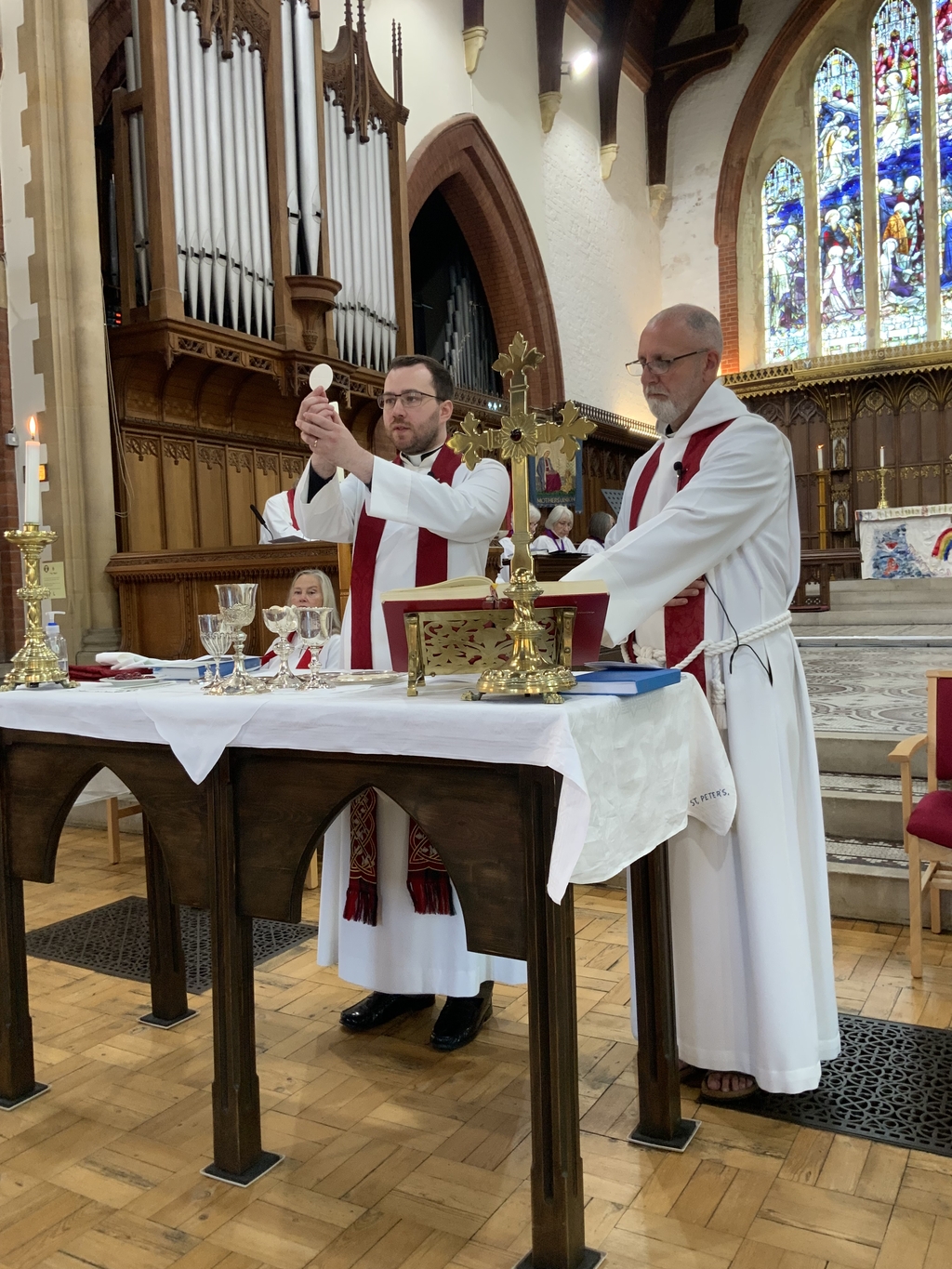Christina last week spoke from the Epistle of James, as I am today. We had both chosen to speak on that book so God wants us to hear in a practical way in St Peter`s what he expects of his people. Christina spoke on what James had written on what we believe should be seen in how we behave. She asked a question at the end of her sermon: `If you were arrested today for being a Christian, would there be enough evidence to convict you?`
I want us to look at James` thoughts on what we believe is seen in how we speak, how we use our tongues.
The James mentioned is likely to have been the brother of Jesus, and the Epistle of James is generally commended as a practical one, tackling problems of everyday life. James speaks of what it means to be a Christian and meets us where we are. He writes `We all stumble in many ways`. That phrase should perhaps be inscribed over every church door. We fail time and again but we celebrate God`s forgiveness.
In our Epistle reading, James speaks of the importance of being aware of a small part of our bodies – our tongue – and the ways in which the tongue affects our life as Christians – and the life of our church.
He urges us to keep control of our tongue and speaks of different ways in which the tongue is the key to our work and witness. He uses different pictures to help us to understand. He likens the work of the tongue to the mouth of a horse which has tremendous power but can be guided by the smallest piece of metal – the bit. He points also to the tiny rudder within a boat which is able to move many tons of metal. He thinks of a candle flame and the way that small flame can unleash terrible forest fires. He urges us to be masters of our tongues. James speaks in very negative terms of what the tongue can do:` it is a restless evil, full of deadly poison, a world of evil among the parts of the body. It corrupts the whole body, sets the whole course of one`s life on fire and is itself set on fire by hell.`
Such strong words remind us of the harm the tongue can do. Something we have said has hurt someone and changed their lives. Maybe we have stretched the truth and reflected lies. Sometimes we have been quick to join in gossip, ruining people`s good names.. Sometimes we have helped others to believe the lies in innuendo. When we have used our tongues in the wrong way, we need to bring our lives to God in repentance and begin again.
We live in a broken world. News headlines reflect a world and a nation so often at war. We see broken relationships in our community and in our world. Communication in that world is hostile to God and the work of the tongue leaves its bitter taste everywhere. It is easy to join in with the world`s values.
But we live in the light of the Resurrection and new beginnings at Pentecost. We are here to reflect a new order. We are here to show what God is like in our relationships, our friendships, our marriages, our life and death. We begin with the respect God and his church should have for each person made in the image of God, part of his family. So often the people in our headlines deny that we are made in the image of God, temptation comes, and they go astray. We are to show what God`s love is like not just in our deeds but in our thoughts and words also. That means making a clear effort to uphold truth and to stand against evil. Is our tongue rightly used or does it apply to us that `we all stumble in many ways`? Maybe today is a day to begin again.
We remember also that the tongue brings to us words of condemnation in our own lives. When we feel accused and deceived by the voices within, we hear the voice of evil who would seek to spoil our walk with God. We need to take hold afresh of the name of Jesus and use it in the spiritual battle we face daily, to use as our prayer the words of one of our hymns:
Strengthen for service, Lord, the hands that holy things have taken;
let ears that now have heard thy songs to clamour never waken.
Lord, may the tongues which `Holy` sang keep free from all deceiving;
the eyes which saw thy love be bright, thy blessed hope perceiving.
The feet that tread thy holy courts from light do thou not banish;
the bodies by thy Body fed with thy new life replenish.
The Revd Pat Hopkins













